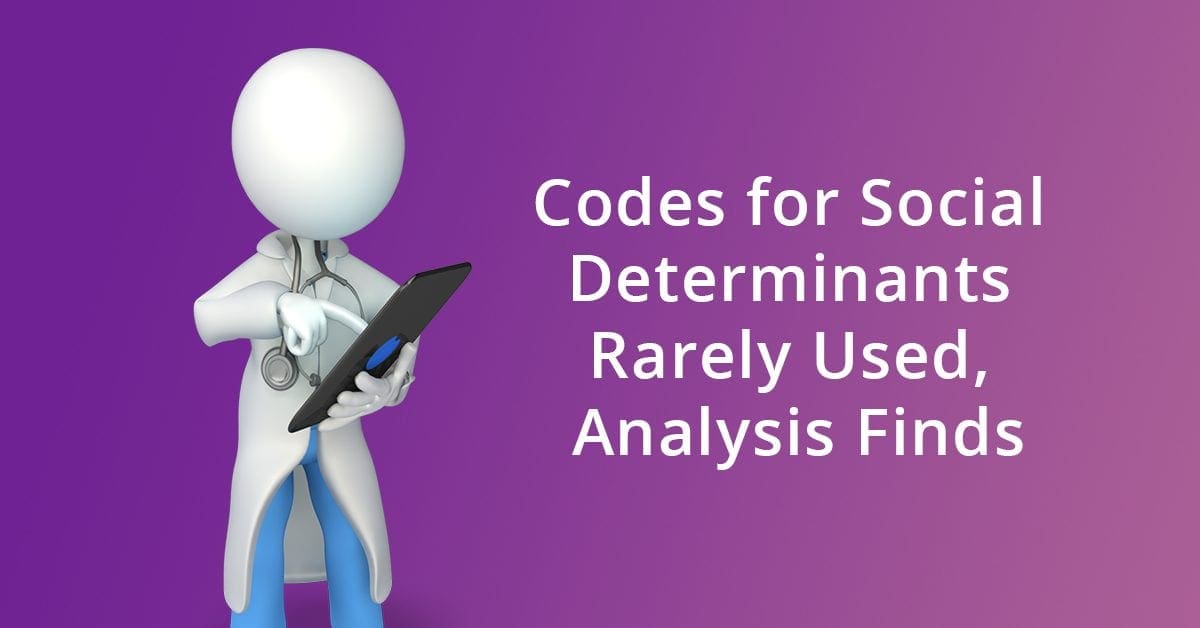Call us toll-free: 800-878-7828 — Monday - Friday — 8AM - 5PM EST


By Shannon Muchmore for Healthcare Dive
Dive Brief:
- In the first two years diagnostic codes specific to social determinants of health were available in Medicare fee-for-service claims, they were used for only 1.4% of the total beneficiary population, according to a new report from CMS.
- Use of the Z codes, first implemented for Medicare FFS in 2016, increased slightly from that year to 2017, the latest data available. The unique beneficiary count for Z code use was 446,171 in 2016 and went up 4.7% the following year to 467,136 people.
- The most frequently used code was for homelessness, followed by problems related to living alone, disappearance and death of a family member, other specified problems related to psychosocial circumstances and problems in relationship with spouse or partner.
Dive Insight:
As the medical community has come to more fully recognize the significant effects social factors play on health outcomes, efforts have ramped up to help providers on the front line recognize the challenges their patients face and act on that information.
The American Medical Association and UnitedHealthcare, the nation’s largest private payer, have said they are working together on more than 20 new ICD-10 codes that would help providers assess patients and refer them to community resources.
But despite the buzz, most providers don’t ask their patients about social needs. A JAMA report published in September found just a quarter of hospitals and 16% of physician practices screened for all five factors CMS has prioritized (food insecurity, housing instability, utility needs, transportation needs and interpersonal violence).
And that counters apparent patient desires: An earlier Kaiser Permanente survey found that an overwhelming majority of respondents wanted doctors to ask them about access to meals and safe and stable housing.
The authors of the new report note the “limited documentation” of SDOH the data show, and say providers have proven to be generally unaware of the Z codes and who can document them.
“However, more widely adopted and consistent documentation is needed to more comprehensively identify social needs, and monitor progress in addressing them. Collaboration between beneficiaries, community groups, and health care providers will be necessary to adequately address the social determinants of health, and ultimately to improve health outcomes,” they wrote.
In looking closer at the beneficiaries who had Z code claims, the analysis found a quarter of them were dually eligible for Medicare and Medicaid and they had some tendencies toward chronic conditions. About 72% had hypertension and 53% had depression. Of those beneficiaries who had Z codes, 35% were younger than 65.
